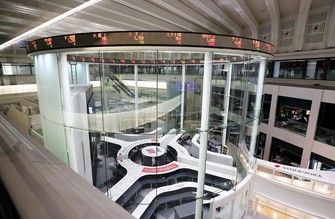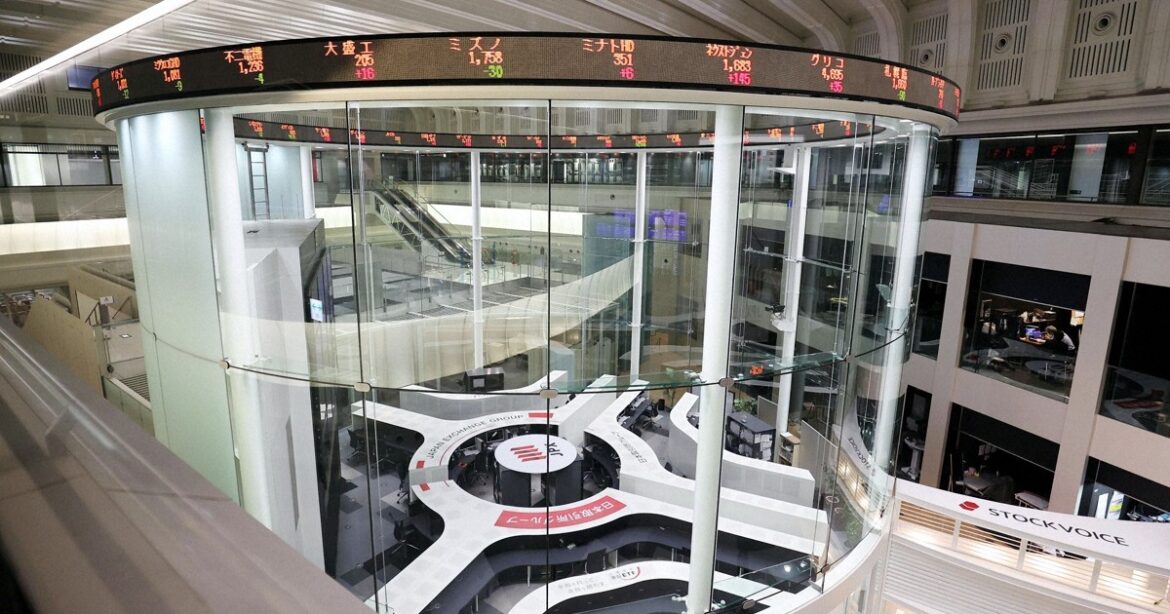
This May 7, 2020 file photo shows the Tokyo Stock Exchange. (Mainichi)
TOKYO (Kyodo) — Tokyo stocks fell Monday as semiconductor-related shares dropped sharply on concerns over weakening chip demand, while investors continued to lock in profits following last week’s surge sparked by a Japan-U.S. trade deal.
The 225-issue Nikkei Stock Average ended down 457.96 points, or 1.10 percent, from Friday at 40,998.27. The broader Topix index finished 21.13 points, or 0.72 percent, lower at 2,930.73.
On the top-tier Prime Market, decliners were led by bank, information and communication, and electric appliance issues.
The U.S. dollar was directionless mostly in the upper 147 yen range in Tokyo on Monday, as investors adopted a wait-and-see stance ahead of monetary policy meetings in Japan and the United States later this week, dealers said.
At 5 p.m., the dollar fetched 148.28-30 yen compared with 147.63-73 yen in New York and 147.37-39 yen in Tokyo at 5 p.m. Friday.
The euro was quoted at $1.1674-1675 and 173.11-15 yen against $1.1733-1743 and 173.35-45 yen in New York and $1.1752-1754 and 173.20-24 yen in Tokyo late Friday afternoon.
The yield on the benchmark 10-year Japanese government bond ended at 1.565 percent, down 0.035 percentage point from Friday’s close, as the debt was bought back after a sell-off that sent the yield to its highest level since October 2008 late last week on speculation of an additional rate hike by the Bank of Japan.
Stocks initially rose on news of a trade deal between the United States and the European Union, under which Washington will impose a 15 percent across-the-board tariff on cars and most other goods from the 27-member bloc.
But the market soon slipped into negative territory as investors sold heavyweight chip-related issues and bank shares that rose sharply last week.
Advantest plunged 9.0 percent to 10,465 yen after UBS Securities Japan Co. downgraded its rating on the chip testing equipment maker to “sell” from “neutral,” citing that demand for a mainstay testing device is expected to weaken from the July-September period.
“In addition to the downgrade, many investors wanted to secure gains after the surges and opted to sell before Japan and U.S. monetary policy meetings and due to Japanese political uncertainty,” said Masahiro Yamaguchi, head of investment research at SMBC Trust Bank.


AloJapan.com